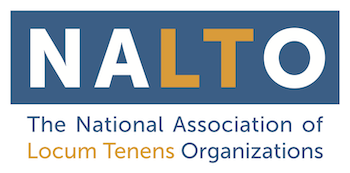Many healthcare organizations are now offering rewards and loyalty programs in an effort to retain patients. Though these programs are still in development, they have shown promise.
Approximately 10 percent of patient appointments result in no-shows. This can be a frustrating experience for healthcare organizations that depend upon health insurance reimbursements and private payers. As a result, facilities have created cancellation policies, which allow providers to charge patients who fail to show up for appointments without reasonable notice. While this has certainly deterred a large number of patients from skipping their scheduled visits, healthcare facilities are looking to do more to retain patients.
Why Patient Retention is Important
Patient retention is essential to the success of a healthcare organization. This is especially true in areas where there is a lot of competition from other providers. One lost patient can mark the beginning of a downward spiral. This is also important in areas with a small pool of potential patients. In these circumstances, it will be difficult for providers to replace patients who have moved on or who simply do not show up for appointments.
Patient retention is of great significance because:
- It Increases Profits: Simply put, the more patients a practice sees, the more money it will bring in.
- It Enhances Clinical Outcomes: When a patient shows up for all scheduled appointments, physicians are able to track that individual’s progress. When patients fail to attend appointments, their condition may become worse, making it harder to treat in the future.
- It Reduces Wasted Time: When patients don’t show up for appointments, physicians and staff may be left with an unnecessary period of inactivity that may not be long enough to complete another task.
- It Reduces Cost: With high patient retention, fewer resources will be used to follow up with no-shows. Additionally, it will decrease the amount of marketing practices must do to attract new patients.
Using Loyalty Programs to Retain Patients
Since client retention is so important to healthcare organizations, many companies are coming up with new and innovative ways to attract patients and reduce no-shows. Recently, some practices have begun to experiment with patient loyalty or rewards programs.
The idea behind the program is essentially the same as any other retail establishment. When patients attend appointments, the reward points are calculated in their account. After a certain number of visits, patients earn enough points to trade them in for promotional items like t-shirts or water bottles. Some larger practices may also offer free valet parking, a coupon for the gift shop, discounts at the pharmacy, or free access to local seminars.
Healthcare organizations that implement these loyalty programs hope that it will counteract the reasons that patients fail to attend appointments, including:
- Scheduling confusion;
- Forgetting an appointment;
- Wait time concerns;
- Lack of respect for the practice;
- Cost concerns;
- Anxiety about a medical procedure or results; or
- Perceived resolution of the medical issue.
If patients are rewarded for attending appointments they may:
- Put more effort into remembering scheduled visits;
- Feel more connected with the facility;
- Be enticed to overcome any appointment-related worries, including concern regarding a procedure or the wait time;
- Feel that attending the appointment has greater value; or
- Be more likely to attend the appointment even if their condition has improved since scheduling.
So far, it is too early in the process for healthcare organizations to establish any concrete findings as a result of these rewards programs. What providers have found, however, is that no matter the results on retention, patients have responded positively to the programs.
Patient reward or loyalty programs are one of many techniques that organizations can try in order to make the healthcare system work better for both themselves and their patients. To continue to improve the healthcare system, providers and physicians should also consider Locum Tenens work. When Locum Tenens professionals are utilized, patients will continue to have access to high quality medical care despite any gaps in service that may exist. This can help providers keep appointments with patients that they have worked so hard to retain. If you are looking for a Locum Tenens opportunity, contact the National Association of Locum Tenens Organizations today.
